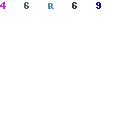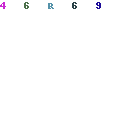Faculty Writer’s Read Series fills void
Students and faculty in SIUE’s College of Arts and Sciences (CAS) have access to an invaluable resource. The Faculty Writer’s Read Series, sponsored by the Stacey Brown, assistant professor of English language and literature and series creator and curator, gives faculty members an opportunity to show off their writing and gives students a chance access to their professors on a different level.
According to Brown, the series grew out of her own personal experience of reading her poetry at other universities.

Juliet Kerico, assistant professor at Lovejoy Library and a SIUE faculty writer, reads from a selection of her works.
“I know first hand from being on that side of the microphone how important it is for universities to have a thriving literary reading series and a literary scene. When my husband and I arrived in 2007, we both noticed there wasn’t a series like that that was contiguous and offered consistent readings for students to witness,” said Brown. “I started the Faculty Writer’s Read Series in 2009. And it grew out of a direct lack of such reading series.”
Brown stated the original idea of the series offered creative writing and English faculty who wrote creatively the opportunity and forum to share their work. She said it also allowed the students access to the professors on a very different level.
“If we’re in a classroom and we’re talking about the life of a poet or the life of a fiction writer, I wanted the students to be able to witness and access their professors enacting that in their own lives, sharing their creative work, sharing whatever project they were working on at the point,” said Brown.
In the past, the series has showcased poetry, short fiction, non-fiction and essays. Brown stated that Jeffrey Skoblow, professor of English language and literature, read an installment of Robert Burns and even had the audience participate in “singing bawdy ballads.”

Adrian Matejka, assistant professor of English language and literature, read poems from his writing in the Morris University Center bookstore.
Brown stated that the series found its own momentum and quickly evolved as she saw the needs of other writers emerge.
“I also realized that there was not an opportunity for our students to read, similar to the lack of a reading series for faculty or other external readers. So, I divided up the Faculty Writer’s Read series so that the fall is dedicated to faculty members and the spring is dedicated to students. Up until this year, it had just been graduate students in our creative writing program,” said Brown.
The series this spring saw its first installment of undergraduate students present their writing. According to Brown, the undergraduate student ‘tore it up.”
Not only is the series a chance for faculty and students to connect, Brown stated that it also gives the local community access to a literary scene.
“It’s really important to take literature off of the page and put it onto the stage. In my estimation, as a poet, I obviously believe very heavily in poetry readings and going to literary events. I think it is wonderful for the community, to get a sense of a thriving literary environment. We have people who are regulars at the Faculty Writer’s Read Series, who have nothing to do with the university. Their just in the greater area and they come in and they watch and see what is being read.”
The series, which takes place on the last Thursday of each month during semesters, is not funded by any departments. It relies on volunteer time in terms of workers, organizers, and publicizing. On the rare occasion, a writer may have a book recently published that they offer for sale.
“It’s not a funded program. It’s all volunteer time. The people in the MUC bookstore–Emily Gray, and Matthew, and Keylyn Song, and Cody Slauson–have all volunteered their time and energy to publicize it, to organize it. They stay open late on the Thursdays that the series happens. No one gets paid. No one charges. If we have a faculty member who has a book out, it can be sold there. For example, Geoff Schmidt, who is one of our fiction professors, had his book release reading for his new collection, Out of Time, as part of the series, so it was sold there. Aside from that, it’s just a voluntary experience.”
Brown stated that the benefit for both faculty and student writers is an immediacy to know how the writing is accepted by the audience. There is no formal critiques to the readers, but the simple act of reading the work in front of the audience takes it from a monologue and turns it into a dialogue between the reader and his or her audience.
“I think that writing is such a solitary act. When you are sitting down, it is just you and your computer or your notebook. Getting up and actually reading involves an audience and you’re able to make direct contact with the audience. And, you are able to hear how they receive what you are saying, like if you are reading a fiction story, you can hear them laugh. Or, if you’re reading poems, you can hear them chuckle or sigh or whatever their reaction is. So, it turns writing into a dialogue rather than a monologue. I think that is really invaluable for people on both sides of the microphone.”
Filed Under: English Language & Lit












